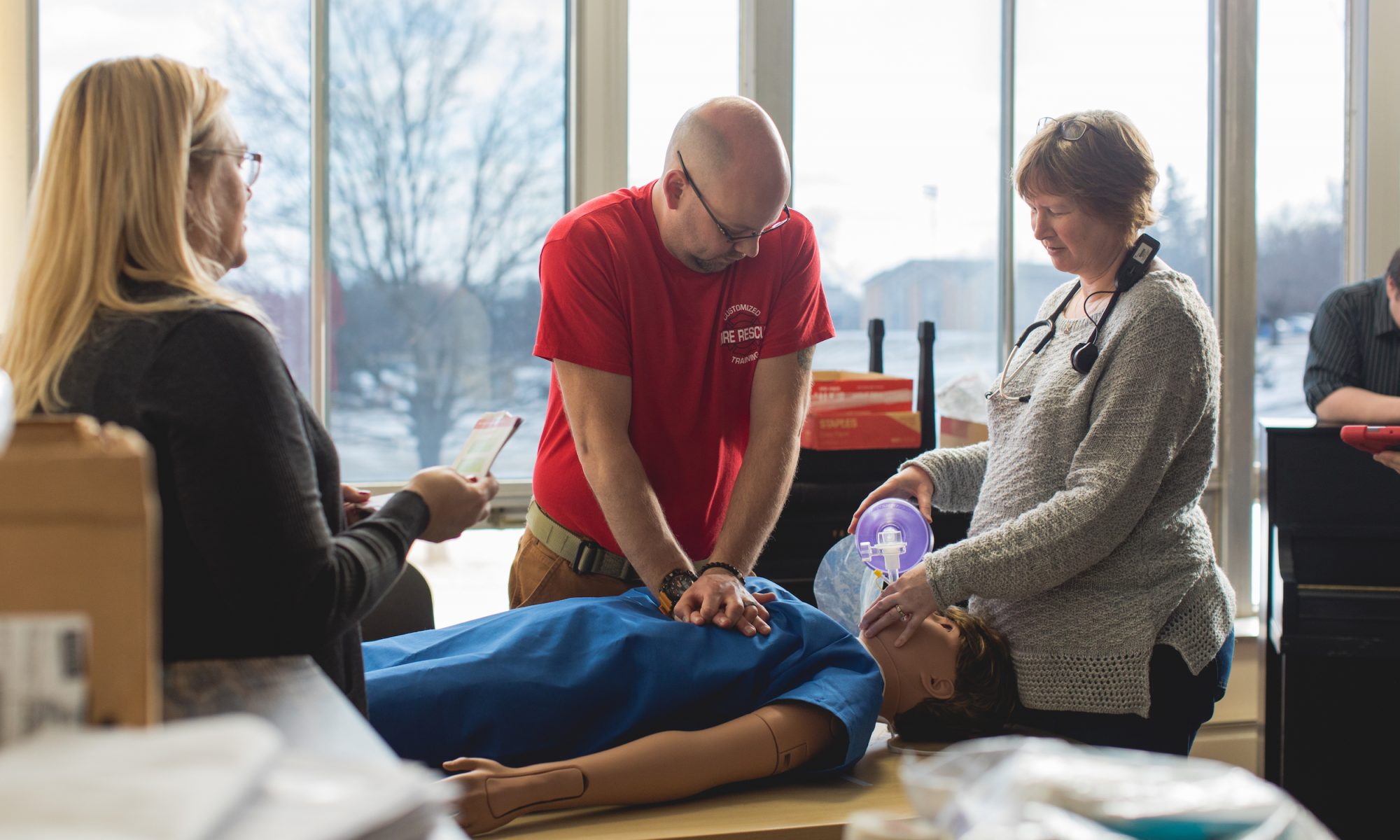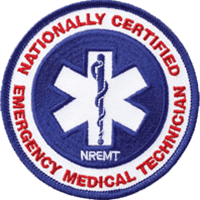This National Registry of Emergency Medical Technicians EMT initial course. Hosted by the EMTI and Ridgeview Medical Center at Chanhassen Fire Station #1.
Emergency Medical Technicians provide out of hospital emergency medical care and transportation for critical and emergent patients who access the emergency medical services (EMS) system. EMTs have the basic knowledge and skills necessary to stabilize and safely transport patients ranging from non-emergency and routine medical transports to life threatening emergencies. Emergency Medical Technicians function as part of a comprehensive EMS response system made up of Firefighters, Police officers, and EMS personnel, under medical oversight. Emergency Medical Technicians perform interventions with the basic equipment typically found on an ambulance. Emergency Medical Technicians are a critical link between the scene of an emergency and the health care system of the national EMS Education Agenda for the Future: A Systems Approach.
After candidates complete this approved EMS education program, and they meet eligibility requirements, candidates are required to demonstrate entry level competency on both cognitive and psychomotor examinations.
Class Schedule and Information
- Where: Classes will be held at Chanhassen Fire Station #1, 7610 Laredo Dr. Chanhassen Mn 55317
- When: Tuesday and Thursday nights from 6:30 -9:30 pm. Starting October 8th and finishing January 21st.
- How: Sign up through this page as an individual with a CC or have your supervisor register you and well send them an invoice.
- Who: Those who desire to deepen their prehospital knowledge or work for an ambulance service.
- Why: To serve, protect, and be the best.
Individual Requirements
Individuals applying for the Emergency Medical Technician national certification must meet the following requirements:
- 18 years of age or older
- Successful completion of a state-approved Emergency Medical Technician (EMT) course (this course) that meets or exceeds the National Emergency Medical Services Education Standards for the Emergency Medical Technician.
- Candidates must have completed the course within the past two years and the course Program Director must verify successful course completion on the National Registry website.
- Have a current CPR-BLS for “Healthcare Provider” or equivalent credential.
- Successful completion of the National Registry cognitive (knowledge) and a state approved psychomotor (skills) exams.
- Passed portions of each examination (cognitive and psychomotor) remain valid for 24 months.
Application Process
- Create an account/login profile on this website.
- Submit a National Registry application and answer all questions truthfully.
- The National Registry may deny certification or take other appropriate actions in regards to applicants for certification or recertification when a criminal conviction has occurred.
- Pay the application fee of $80 (US funds). The application fee is non-transferable and non-refundable. This fee is charged for each attempt of the cognitive examination.
- Candidates will receive an electronic Authorization to Test (ATT) once you are eligible for the exam. The electronic ATT contains scheduling instructions and important details concerning proper identification required at testing centers. You can find the ATT in the ‘Check Application Status’ page.
Recertification Requirements
After completing your initial Emergency Medical Technician (EMT) educational program, you must within two years, document successful completion of a state-approved EMT refresher course or 24 hours of equivalent continuing education topic hours.
Responsibilities of Nationally Certified EMS Personnel
Certified Emergency Medical Technicians (EMTs) must notify the National Registry within 30 days regarding the following matters:
- change in mailing address (the best way to update a mailing address is by editing the user profile page)
- any criminal conviction.
- disciplinary action taken by any state has resulted in suspension, revocation, or expiration of state registration/licensure; termination of right to practice; voluntary surrender of state registration/licensure while under investigation.
The National Registry considers the individual to be solely responsible for their certification.
No classes are scheduled at this time.
Please contact us to discuss your current needs.

